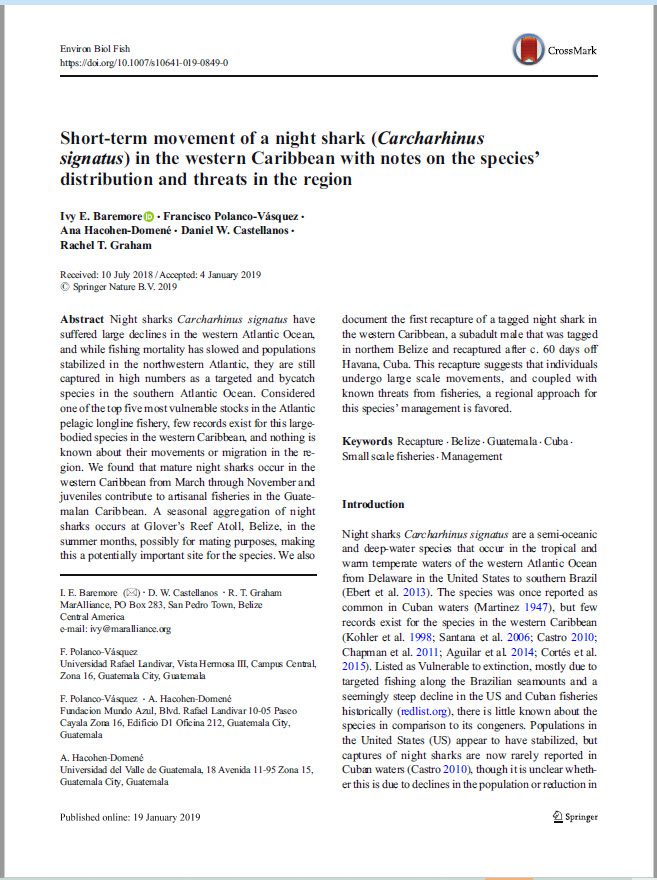Night sharks Carcharhinus signatus have suffered large declines in the western Atlantic Ocean, and while fishing mortality has slowed and populations stabilized in the northwestern Atlantic, they are still captured in high numbers as a targeted and bycatch species in the southern Atlantic Ocean. Considered one of the top five most vulnerable stocks in the Atlantic pelagic longline fishery, few records exist for this large- bodied species in the western Caribbean, and nothing is known about their movements or migration in the re- gion. We found that mature night sharks occur in the western Caribbean from March through November and juveniles contribute to artisanal fisheries in the Guate- malan Caribbean. A seasonal aggregation of night sharks occurs at Glover’s Reef Atoll, Belize, in the summer months, possibly for mating purposes, making this a potentially important site for the species. We also document the first recapture of a tagged night shark in the western Caribbean, a subadult male that was tagged in northern Belize and recaptured after c. 60 days off Havana, Cuba. This recapture suggests that individuals undergo large scale movements, and coupled with known threats from fisheries, a regional approach for this species’ management is favored.
Ivy E. Baremore, Francisco Polanco-Vásquez, Ana Hacohen-Domené, Daniel W. Castellanos, Rachel T. Graham

